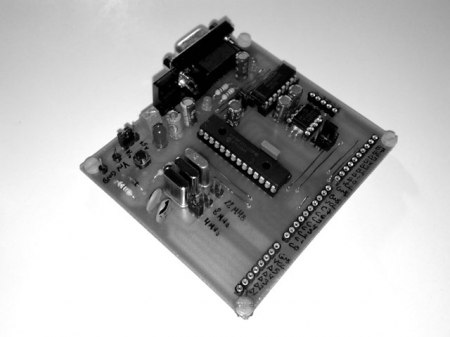Este circuito muestra de una forma sencilla el uso de un Modulador de Anchura de Pulsos (PWM), que será utilizado para regular la tensión entregada a una bombilla y a un pequeño motor, de forma que se pueda variar la luminosidad y la velocidad respectivamente. Para ello se utilizan 4 microinterruptores, pudiéndose obtener de esta manera hasta 16 valores de voltajes distintos en la carga.
Ver másCategoría Electrónica
Gracias a esta placa de desarrollo para PICs, el hecho de programar estos dispositivos y comprobar su funcionamiento, será algo más sencillo. Ya no tendrás que montar en una protoboard el PIC en cuestión, con su cristal y condensadores, además de la comodidad de encontrar rápidamente cada E/S, ya que están marcadas sobre la placa.
Ver másQuizás alguna vez te haya pasado que estás realizando un pequeño proyecto con un microcontrolador, y tras incluir demasiados periféricos, te das cuenta que te empiezan a escasear las entradas/salidas. Es aquí donde hay que agudizar el ingenio, y como en este caso, pensar alguna forma de reducir una salida si quieres encender 2 LEDs de forma no simultánea.
Ver más





Comentarios recientes